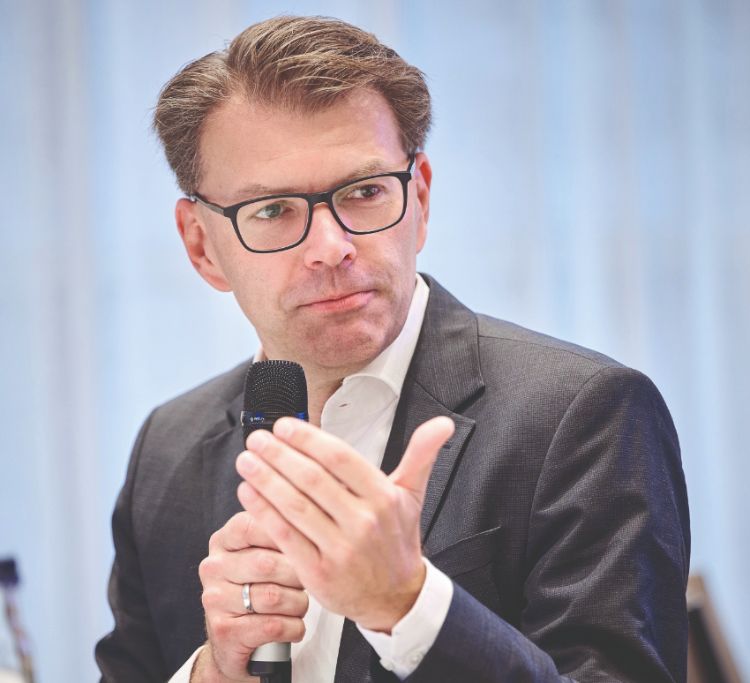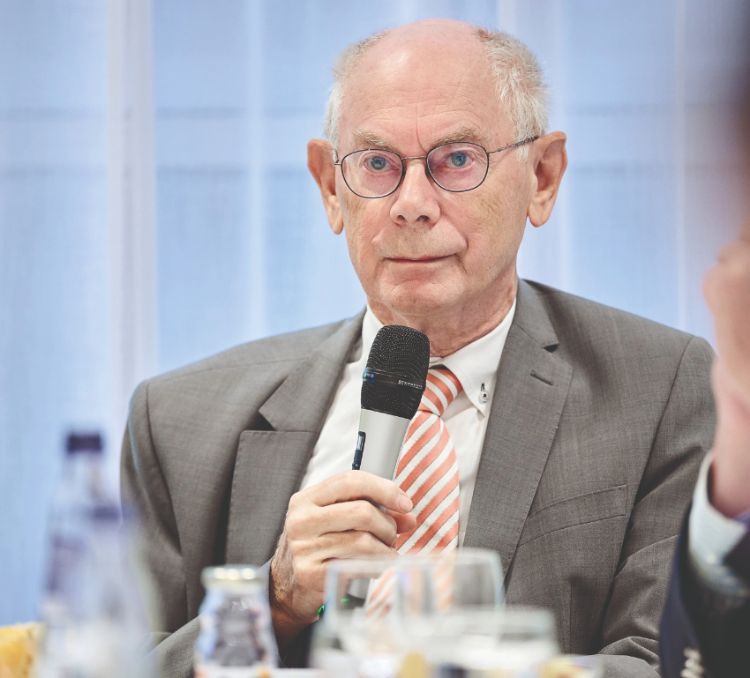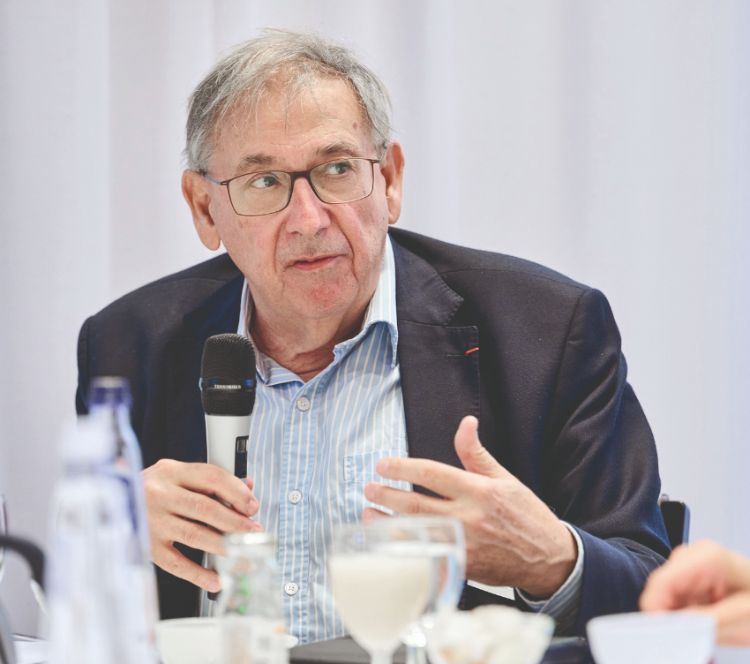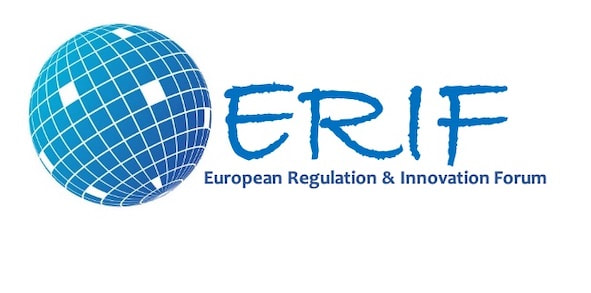“Either Europe delivers competitiveness now, or we won’t be able to fund our own security and welfare.” This stark warning from German MEP Daniel Caspary set the tone at a recent high-level discussion in the European Parliament, where regulatory experts, MEPs, and senior officials explored how Europe should respond to a shifting global order.
“This is not an abstract debate about regulation,” MEP Caspary continued. “It’s about Europe’s capacity to protect its citizens and preserve its way of life.” The Brussels event was organised by Better Regulation for European Leadership (BREL ASBL) and the European Risk and Innovation Forum (ERIF), two independent platforms dedicated to improving EU regulation, promoting innovation-friendly governance, and fostering new thinking on how Europe can balance growth, sustainability, and better regulation.
 MEP Daniel Caspary
MEP Daniel Caspary
It is the first in a series of planned dialogue events to be held in the ‘Jeffersonian’ style – a conversational format designed to encourage deep, civil, and reflective dialogue “We must fundamentally revisit the way in which the EU conceives regulation,” Andrew Fielding from BREL explained. “We need a proper upfront balancing test which starts with institutions that listen and which ends up with policies that deliver the intended outcomes.”
With Washington pursuing protectionist industrial policies and Beijing exporting overcapacity through state-led capitalism, event participants argued that the EU risks being squeezed between two giants while undermining its own prospects with complex regulation and fragmented markets.
MEP Caspary, who until recently led the German delegation for the EPP, highlighted the example of the EU’s flagship Carbon Border Adjustment Mechanism (CBAM). This mechanism is intended to prevent carbon leakage. In practice, Caspary argued, “It is delivering the opposite of its intention and giving businesses another reason to leave Europe.”
Europe has talent, capital, and a huge internal market, but we lack urgency. The danger is not that we are beaten by others, but that we are beaten by ourselves. - Herman van Rompuy
Jean-Luc Demarty, former Director-General for Trade at the European Commission, identified similar unintended consequences with the rollout of the European Green Deal and called for a more pragmatic approach that balanced achieving key climate objectives with protecting European industries.
“Ambition is important, but ambition without realism will bury our competitiveness,” Demarty told the event. “We are on the wrong track. Our current approach risks destroying Europe’s chemical, steel, and agricultural sectors, all for targets that the rest of the world is not following.” Demarty fears that the pace of implementation could potentially “bury our industry.” Europe, he argued, accounts for just 6 per cent of global emissions yet has committed to move faster than China, which has set a 2060 target despite emitting five times as much.
“The world is laughing at us,” he added. One attendee from a leading industry association said the messaging from the Commission was still inconsistent, adding that there is “a clear disconnect” between the pro-growth and pro-competitiveness mission of DG Grow, and the slow pace of change from departments like DG ENVI.
 Herman van Rompuy
Herman van Rompuy
“There seems to be no strategic coordination that thinks about innovation and competitiveness as an integral part of new legislation devised by other departments,” he said, calling for an ‘innovation check’ on all EU legislative initiatives. “Any new regulation should be systematically subject to a balancing test right from the outset, rather than added as an afterthought once legislation has already been drafted by the Commission department holding the pen.”
Lord Jo Johnson, former UK universities minister and now a peer, highlighted the lack of scale in European tech and industry. “Europe cannot be content with a peashooter industrial strategy, merely boasting isolated success stories,” Johnson told guests. “We need scale - otherwise we will be regulation-takers, not rule-makers.”
And regulations rules are not just an abstract issue that only affects European businesses. Citizens also feel the weight of Europe’s approach. Demarty warned that “ordinary citizens consider this to be a disproportionate burden. If mainstream parties don’t revisit it, populists will.” Herman Van Rompuy, the former President of the European Council, called for urgency in deepening the EU’s capital markets.
“Deliver capital markets union - treat it as a test case, not a talking point,” he urged. Without it, he said, Europe will continue to fall behind in financing high-growth firms. He also advocated more pragmatism in climate policy. “What matters most is flexibility and leadership, not ideology,” Van Rompuy explained.
“We should not be obsessed with dates. If 2035 becomes 2040, in the light of eternity, that is nothing. Direction matters more than the calendar. Europe has a habit of acting only in crisis. We must learn to act before the next one.” Demarty pressed for tougher trade defence, including ending the “lesser duty” rule that limits tariffs, tightening anti-subsidy measures, and requiring joint ventures and technology transfer in key sectors.
He said Europe should not shy away from deploying its new anti-coercion instrument when Beijing retaliates. Van Rompuy agreed on the need for a new robustness, saying Europe needed to revive the balance of “firmness and dialogue” that defined Cold War diplomacy. It was a point echoed by Romanian MEP Andi Cristea.
 Jean-Luc Demarty
Jean-Luc Demarty
“We talk about values and principles, but we have lost our instinct to defend our interests,” Cristea said. “We are playing cooperation games in a world where everyone else plays zero-sum games. That is not good news for Europe.” Trade agreements were also highlighted as a strategic tool that Europe must be willing to deploy.
Van Rompuy said the EU must prove its relevance by concluding deals with Indonesia and India, even if the latter proved less ambitious. “Free trade agreements are geopolitical tools,” Van Rompuy argued. “We will not be taken seriously without them.”
Industry voices also argued for a shift in how regulation is made. One industry attendee described the current approach as a thicket of overlapping rules periodically cut back by omnibus reforms. A better system, he suggested, would build continuous innovation pathways from the outset rather than layering complexity and trimming it back every decade.
The discussion closed with reminders that Europe has succeeded before. Van Rompuy told the event that Europe has the tools to act but using them requires political commitment. “Without leadership, nothing moves,” Van Rompuy concluded. “Europe has immense potential. We have talent, capital, and a huge internal market, but we lack urgency. The danger is not that we are beaten by others, but that we are beaten by ourselves.”
In partnership with


Sign up to The Parliament's weekly newsletter
Every Friday our editorial team goes behind the headlines to offer insight and analysis on the key stories driving the EU agenda. Subscribe for free here.